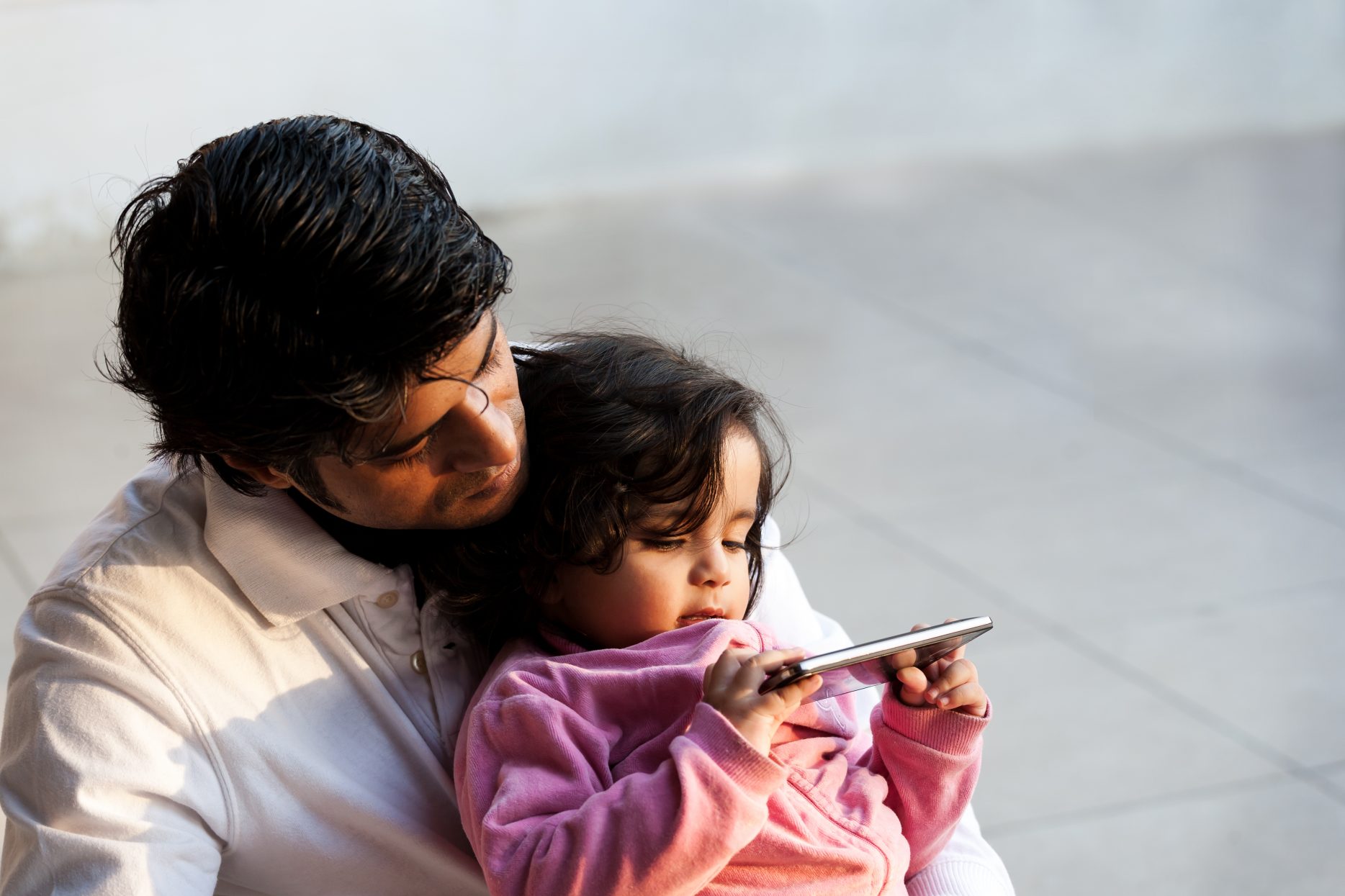Last month the World Health Organization (WHO) published new guidelines for children under five. Their advice is this: cut screen time to an hour or less a day (none in the first year of life) and give your kid more opportunities for active play.
Screen time is one of the most controversial issues of parenting. A pediatric occupational therapist recently called for a total ban on smartphones and tablets for children under the age of twelve. Other experts challenge such views as alarmist, arguing that in an era when children already average several hours a day online, the question is not the amount of time spent online but the content.
WHO approaches this controversy through the lens of laying down media habits that will support your kid’s health through adolescence and into their adult lives. How much screen time you give your kid really matters, because the research shows that high media use as a young child leads to excessive use as a teen. The biggest problem that mobile devices pose young children is that they displace other experiences that they need, such as interactive parenting and physical activity. To drive the point home WHO reminds us that over 23% of adults and a startling 80% of adolescents are not sufficiently physically active.
For many parents restricting our children’s device use is easier said than done. The majority of parents give their child over two hours a day of screen time by the time they are two. There are good reasons for this. Mobile devices free us to prepare meals and take care of the house and our lives. Many parents use screen time to distract and soothe fussy infants and distressed toddlers who have difficulty managing their emotions, falling asleep and staying asleep. And the number one reason, which many experts seem to ignore, children and their parents enjoy the entertainment and creativity that mobile devices provide.
What is the best advice for parents and caregivers around screen time? Perhaps the most helpful analogy comes from dieticians. Ideally we give our children a varied diet, and help them learn how to balance their favored foods, which may have adverse health consequences if eaten in excess, with foods that support healthy growth. The same principles can be applied to tablet and smartphone use.
“What we really need to do is bring back play for children,” says Dr Juana Willumsen, WHO focal point for childhood obesity and physical activity. “This is about making the shift from sedentary time to playtime, while protecting sleep.”
Here are the WHO recommendations at a glance:
Infants (less than 1 year) should:
- Be physically active several times a day in a variety of ways, particularly through interactive floor-based play; more is better. For those not yet mobile, this includes at least 30 minutes in prone position (tummy time) spread throughout the day while awake.
- Not be restrained for more than 1 hour at a time (e.g. prams/strollers, high chairs, or strapped on a caregiver’s back). Screen time is not recommended. When sedentary, engaging in reading and storytelling with a caregiver is encouraged.
- Have 14–17h (0–3 months of age) or 12–16h (4–11 months of age) of good quality sleep, including naps.
Children 1-2 years of age should:
- Spend at least 180 minutes in a variety of types of physical activities at any intensity, including moderate-to-vigorous-intensity physical activity, spread throughout the day; more is better.
- Not be restrained for more than 1 hour at a time (e.g., prams/strollers, high chairs, or strapped on a caregiver’s back) or sit for extended periods of time. For 1-year-olds, sedentary screen time (such as watching TV or videos, playing computer games) is not recommended. For those aged 2 years, sedentary screen time should be no more than 1 hour; less is better. When sedentary, engaging in reading and storytelling with a caregiver is encouraged.
- Have 11-14 hours of good quality sleep, including naps, with regular sleep and wake-up times.
Children 3-4 years of age should:
- Spend at least 180 minutes in a variety of types of physical activities at any intensity, of which at least 60 minutes is moderate- to vigorous intensity physical activity, spread throughout the day; more is better.
- Not be restrained for more than 1 hour at a time (e.g., prams/strollers) or sit for extended periods of time. Sedentary screen time should be no more than 1 hour; less is better. When sedentary, engaging in reading and storytelling with a caregiver is encouraged.
- Have 10–13h of good quality sleep, which may include a nap, with regular sleep and wake-up times.







Leave A Comment